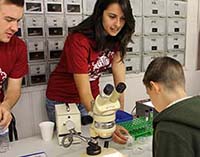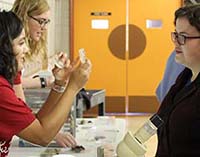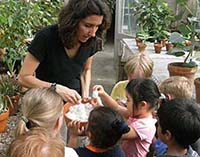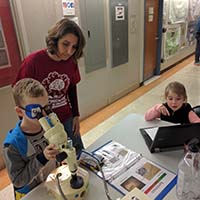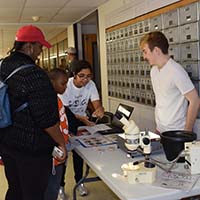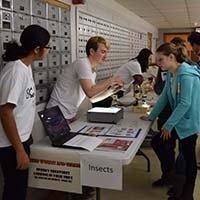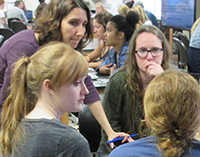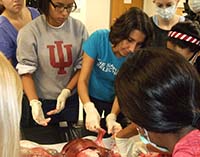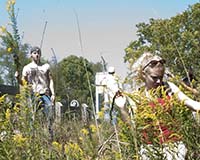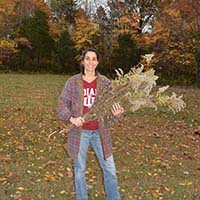Teaching
If biology is the exploration of life, then teaching is sharing that adventure and its discoveries. In the Bashey lab we believe that learning is integral to the human experience and that science education is fundamental.

Farrah teaches classes in the Department of Biology and for the Human Biology Program at IU:
Human Biology B400—The Complex Problems of Humanity: Capstone seminar for Human Biology majors emphasizing student research on the interface of science and society. Students make arguments informed by the scientific literature and communicate these ideas beyond the classroom setting. Course focuses what we have learned from our long battle against infectious diseases focusing on antibiotic resistance, vaccines, the rise of allergies and autoimmune diseases, and on emerging infectious disease.

Human Biology B200—The Intricate Human: Interdisciplinary study of the human organism which serves as the formative course in the Human Biology major. Emphasis is placed on developing scientific literacy and implementing the scientific method, while examining the cultural context of the human experience. Students participate in hands-on labs and complete a team research project, which they present in a public poster session. Farrah teaches two versions of this course:
- Obesity and Hunger (co-taught with Andrew Libby): Course focuses on the physiology of metabolism and nutrition using a comparative evolutionary perspective and examines how economic factors shape our current phenotypes.
- Epidemics (co-taught with Krista Maglen): Course focuses on how the scientific method has been employed to combat epidemics. We examine epidemiological and biomedical approaches to studying disease and how these approaches are influenced by their cultural context.

Biology L410/L328—Ecology and Evolution of Infectious Disease: Upper-level course examing how parasites effect host populations. Students develop fluency with SIR and other ecological models of disease, study the evolutionary theory of parasite virulence and host resistance, examine effects of parasites on host behavior and factors that promote the emergence of new diseases. Emphasis is placed on reading and discussing primary literature.
Biololgy L318—Evolutionary Biology: Upper-level undergraduate course focusing on evolutionary processes and the science of evolutionary studies.
Biology S318—Honors Evolution: An intensive-writing course with a laboratory, students develop independent research proposals over the course of the semester.

